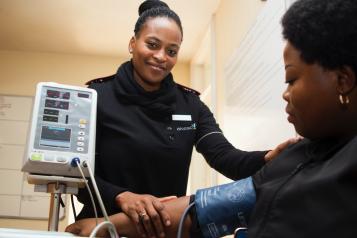Why Black, Asian and minority ethnic organ donors are needed
Any of us, or a family member, friend, or member of our community might need a transplant in future.
People in need of transplants rely on people being willing to donate their organs to save their lives.
You can donate some organs (a kidney or part of your liver) while you are alive and can donate organs and tissue after your death. You could save or improve up to nine lives by donating your organs when you die and make better the lives of even more by donating tissue.
People from black and Asian communities are more likely to develop conditions such as high blood pressure, diabetes and certain forms of hepatitis than white people. This makes them more likely to need a transplant.
Black, Asian and minority ethnic patients make up over a third of the active kidney transplant waiting list.
You could save up to nine lives
Black, Asian and minority ethnic patients often have to wait significantly longer for a successful match than white patients, due to a shortage of suitably matched donors.
If more people with these ethnic backgrounds donated their organs after death, or as a living donor, then transplant waiting times would reduce.
Your organ donation decision is important, whatever it may be. Use this information to help you make an informed choice, and then talk to your loved ones.
Generally, these patients wait significantly longer for a kidney transplant than white patients if they are fortunate enough to receive an organ from a donor. Sadly, many will die waiting.
Organ donation is done anonymously with a donor’s organs going to patients who are well matched.
Although many black and Asian patients are able to receive a transplant from a white donor, for many the best match will come from a donor from the same ethnic background.
While some people with a black or Asian background go on to donate when they die each year, this is not enough to meet the needs of all patients waiting for a transplant from those communities.
Only 7 out of every 100 people who have signed up to the NHS Organ Donor Register and have told us their ethnicity are from black, Asian or minority ethnic communities. These groups are also much less likely to consent to donating a relative’s organs.
You could help improve the chances of black and Asian patients getting the transplant they need by signing up to the NHS Organ Donor Register and by talking to your family, and other people important to you, about what you want.
In addition, you should consider being a living donor to close family or friends who may be waiting for a kidney.


